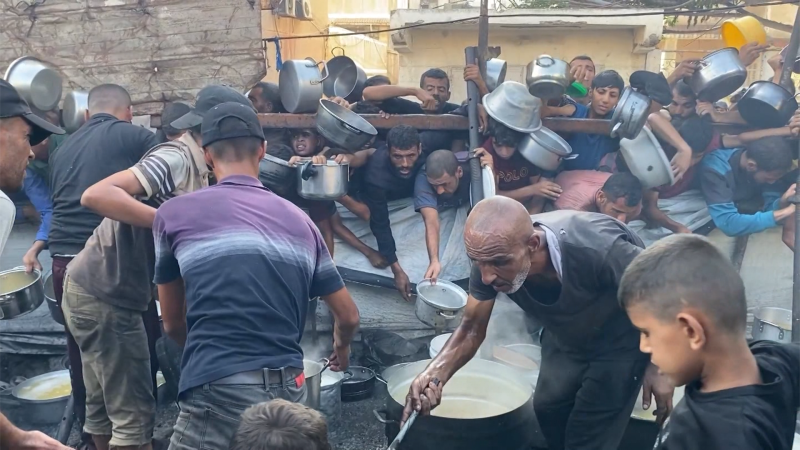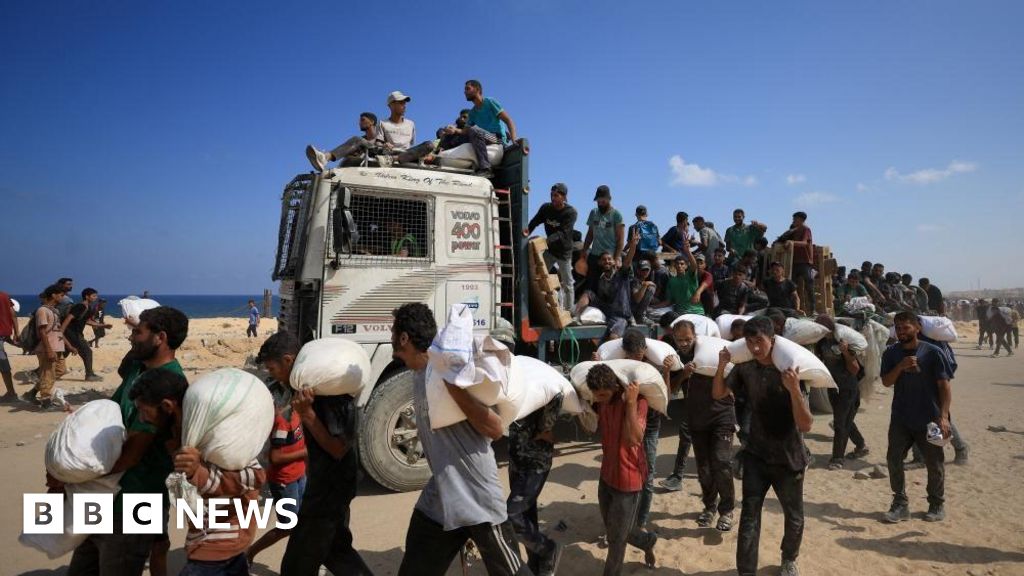Starvation Crisis in Gaza: The Resumed Airdrops and Mixed Reactions

Introduction
Amidst the ongoing conflict in Gaza, a new crisis has emerged - starvation. The besieged enclave has been facing severe food shortages, leading to an alarming rise in deaths from hunger. In response, Israel has resumed airdrops of essential food supplies. This move has been met with mixed reactions, with some viewing it as a necessary humanitarian effort while others criticize it as a band-aid solution to a larger issue.
Key Details
The situation in Gaza is dire, with reports of malnutrition and starvation becoming increasingly common. The United Nations estimates that over half of the population is food insecure, and that number is only expected to rise. The airdrops, while providing some relief, cannot be sustained in the long term. The underlying issue of the ongoing blockade and restrictions on imports and exports needs to be addressed to truly alleviate the crisis.
Furthermore, the airdrops have also been met with concerns over the safety and accuracy of the drops. With limited access to proper infrastructure and resources, the risk of food being damaged or falling into the wrong hands is high. This raises questions about the effectiveness of this method and the need for a more sustainable solution.
Impact
The resumption of food airdrops in Gaza highlights the severity of the situation and the urgent need for a long-term solution. While providing some temporary relief,
About the Organizations Mentioned
United Nations
The United Nations (UN) is a pivotal international organization established in 1945, following the devastation of World War II, with the primary goal of maintaining global peace and security, fostering international cooperation, and promoting social progress. The UN Charter, signed by 51 founding member states, including the United States, the United Kingdom, China, and the Soviet Union, laid the foundation for this ambitious endeavor[1][3]. ## History and Structure The UN was born out of the failures of its predecessor, the League of Nations, which failed to prevent World War II. Key planning meetings, such as the Dumbarton Oaks Conference in 1944, defined the UN's structure, which includes the General Assembly, the Security Council, the Economic and Social Council, the Trusteeship Council, the International Court of Justice, and the Secretariat[1][6]. The Security Council, with five permanent members (the United States, China, France, Russia, and the United Kingdom), holds significant influence due to its veto power[2]. ## Key Achievements Over the years, the UN has played a crucial role in conflict resolution, human rights advocacy, and sustainable development. Notable achievements include the establishment of the Universal Declaration of Human Rights in 1948 and the implementation of numerous peacekeeping missions worldwide[3][4]. The UN has also been instrumental in addressing global challenges such as climate change and pandemics through its various programs and agencies. ## Current Status Today, the UN comprises 193 member states, with its most recent addition being South Sudan in 2011[5]. The organization continues to evolve, addressing emerging issues like digital governance and cybersecurity. Despite challenges, the UN remains a cornerstone of international diplomacy and cooperation. ## Notable Aspects The UN's work is not limited to politics; it also impacts business and technology through initiatives that promote sustainable development and digital inclusion. Its role in setting global standards and fostering international cooperation makes it a significant player in shaping the

















